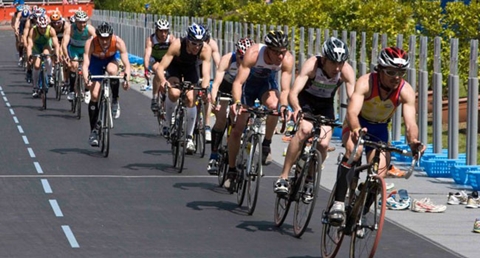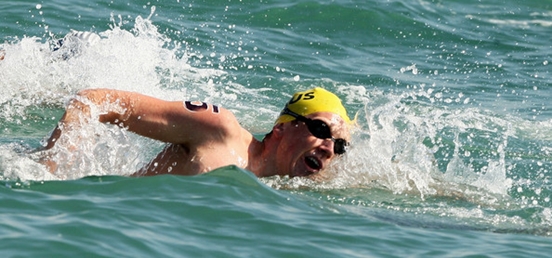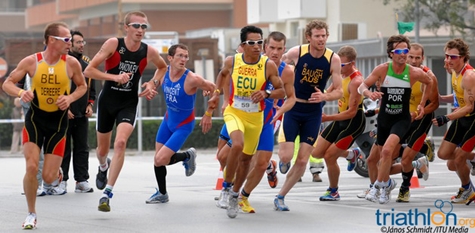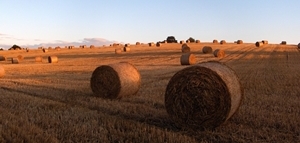How Men Produce Testosterone
The purpose of this article is to provide a brief description on how men produce testosterone and what foods contain the nutrients that help in the testosterone production process. The impact of lifestyle on testosterone production is discussed at Natural Ways to Increase Testosterone.
Testosterone is very important to a man's health. In addition to impacting male sexuality, testosterone effects growth of muscle mass and strength, increased bone density and strength, and stimulation of linear growth and bone maturation. Healthy testosterone levels are key to excellent athletic performance.
In men, testosterone is mainly produced by special cells called the Leydig cells, which are located in the testes. The production of testosterone is regulated by a portion of the brain called the hypothalamus. The hypothalamus secretes a hormone which activates the pituitary gland. Both glands release hormones that signal the testes to produce testosterone.
Testosterone - an androgen steriod hormone, like all steroid hormones - is synthesized via a series of chemical reactions that start with cholesterol. The body uses chemical reactions controlled by proteins called enzymes to create testosterone.
Foods that Increase Testosterone Levels
The following nutrients are important to the production of men's testosterone.
Cholesterol. Cholesteral is the key initial building block for the production of testosterone. Foods high in cholesteral include raw milk, eggs and beef. Raw milk and eggs are arguably the most nutritious foods on earth. See Raw Milk Nutrient Content and Nutrient Content of Eggs
Protein Enzymes and Vitamin B. Protein enzymes and the Vitamin B's are essential to the production of testosterone. Beef, chicken, raw milk and eggs are excellent sources of protein enzymes.
Zinc. One nutrient absolutely essential for maintaining a manís testosterone levels is zinc. This mineral is involved in many aspects of male reproduction, including testosterone metabolism, sperm formation, and sperm motility. Also, as medical evidence suggests that men experience a significant loss of zinc with each ejaculation, eating a food high in zinc after ejaculation is recommended.
Food high in Zinc include oysters, beef, turkey, chicken, lobster and whole wheat. Cashews, sunflower seeds and milk also contain zinc. For a list of foods that contain zinc listed by highest concentration See Natural Food Sources of Zinc
Oysters not only help increase testosterone and improve libido in men but also helps increase semen production and improve sperm count, thereby giving a big boost to your fertility and potency.
Whole grains are also a good natural source of zinc. See Health Benefits of Whole Grains - Nutrient Comparison between Whole Grains and Refined Flour Products
Zinc from animal proteins from beef, eggs and raw milk is more readily absorbed by your body than from any other source!
Vitamin D. Vitamin D is the only vitamin that has been clearly shown to be related to testosterone. An Oxford University study found that men with sufficient levels of vitamin D also had higher levels of testosterone than men with insufficient levels of the vitamin. Vitamin D is manufactured in the human body when the skin is exposed to the sun. The sun is the primary source of Vitamin D and there are numerous factors effecting Vitamin D synthesis and the sun. Get outside! See Vitamin D Synthesis
Selenium. The mineral Selenium that has been definitively linked to healthy testosterone levels. Brazil nuts are very high in selenium. Tuna, herring, pork, turkey, eggs, sunflower seeds, anchovies and raw milk also contain selenium. For a full list of food sources and concentrations of selenium See Selenium Food Sources
Essential Fatty Acids like Omega 3 also play a key role in impacting testosterone levels positively. The best source of essential fatty acids like Omega 3 is oily fish like salmon, sardine, mackerel and Cod Liver Oil. See Natural Food Sources of Omega-3 Fatty Acids and raw milk.
Nuts. Nuts are good for your nuts. Research has found that men who ate diets rich in monounsaturated fat -- the kind found in peanuts -- had the highest testosterone levels. It's not known why this occurs, but some scientists believe that monounsaturated fats have a direct effect on the testes. Nuts, olive oil, canola oil and peanut butter are good sources of monounsaturated fat.
Cruciferious Vegetables. Cruciferous vegetables like Broccoli, cauliflower and cabbage yields compounds called indoles that help lower certain estrogens, which in turn can help reduce estrogenís inhibitory effects on testosterone production.
Garlic can raise testosterone levels because it contains a strong compound called allicin that can increase the levels of testosterone hormone.
Avoid Soy!
Soy lowers testosterone levels by increasing Estrogen! Soy has become a filler in many food products. Men should avoid products that include soy. See Soy Lowers Men's Testosterone Levels
Also, antiandrogens include spearmint tea that reduce testosterone levels
Unless Necessary, Testosterone Supplements are Not Recommended due to Side Effects
Medical professionals recommend that If you have reduced levels of sexual desire, have your testosterone level checked immediately. This is so especially since low testosterone levels increase the risk of heart attack.
If your testosterone levels are very low and need to be more quickly increased with testosterone supplements as recommended by your doctor, the natural ways of increasing testosterone levels can also be helpful. You can replenish your testosterone stores with injections, gels, pills or patches. Discuss with your physician before taking testosterone supplements. Ask your doctor about potential side effects of taking testosterone supplement, which could include acne, high cholesterol, shrunken testicles and liver damage. Further, don't take supplements like DHEA or androstenedione to boost testosterone; they might increase your risks of prostate cancer and heart disease.
There is some debate and concern whether taking Testosterone supplements decreases the ability of the body to naturally produce testosterone.
More about Ralph Teller. See Ralph's 1Vigor Log Calendar.






